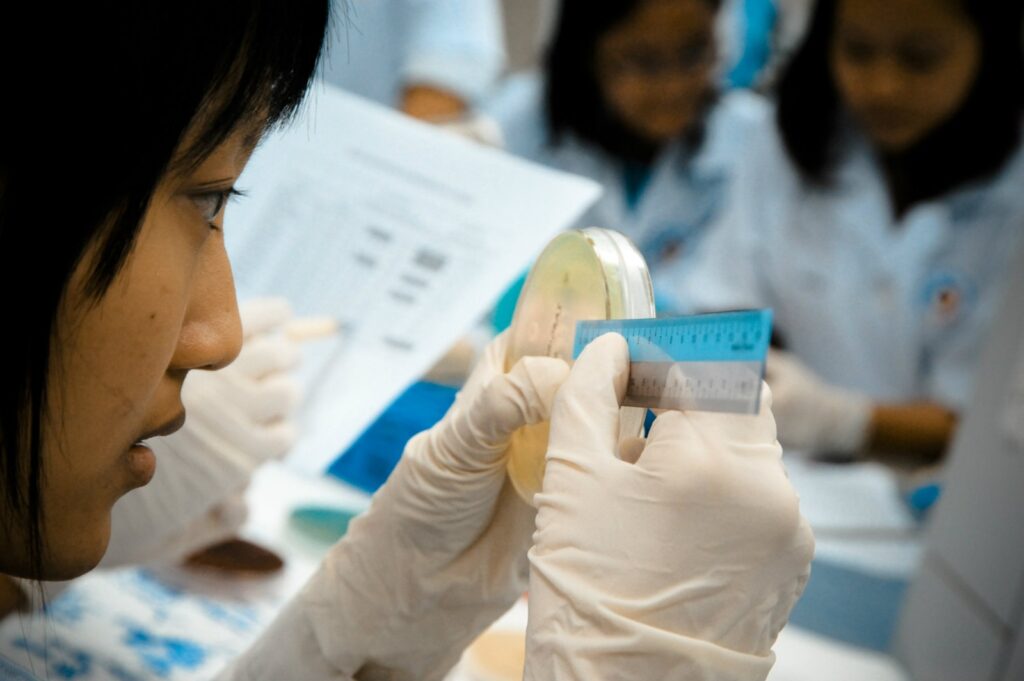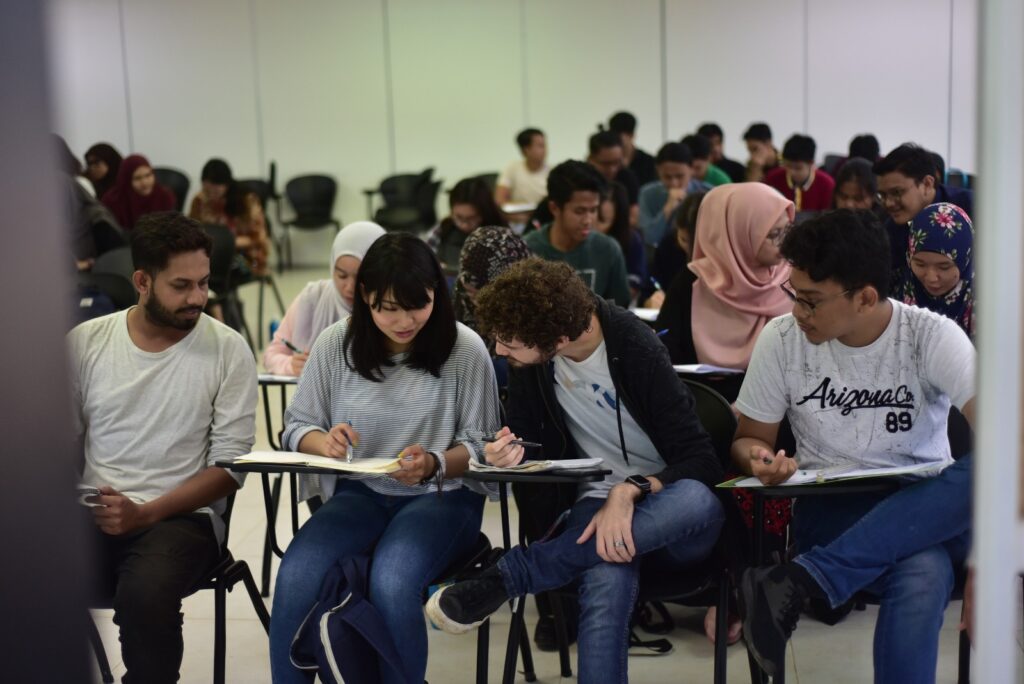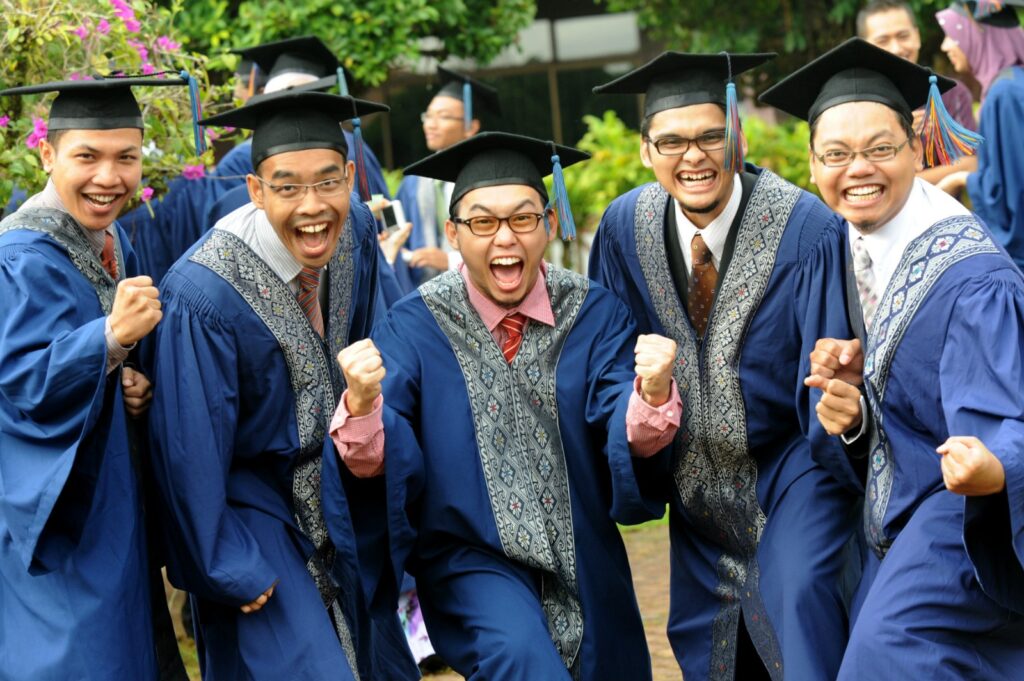
The recent media statement by the Minister of Higher Education on 24 May 2025 reaffirms Malaysia’s steadfast commitment to diversity, equity, and inclusion in higher education. This national stance aligns closely with UNIMAS’s own strategic vision and institutional values. The statement was released in direct response to growing international concerns, particularly the restrictive policies affecting international student access at elite institutions such as Harvard University. These developments signal a broader global retreat from inclusive values, prompting Malaysia to assert a clear and principled stance. As emphasized by the Minister, higher education must remain a space where individuals from diverse backgrounds can learn, collaborate, and innovate together. Restrictive admissions policies not only limit access but risk undermining the very ideals that have sustained academic excellence and inclusivity
At the heart of UNIMAS’s global strategy is the belief that meaningful international collaboration enhances academic excellence, drives impactful research, and promotes cross-cultural understanding. With more than 238 strategic global partners from 35 countries, UNIMAS actively engages with universities, industries, embassies, and associations across the world. These partnerships are not merely symbolic, they function as robust frameworks for co-developing knowledge, enhancing academic standards, and catalyzing innovation.

Through these collaborative engagements, UNIMAS reaffirms its commitment to global engagement and academic diplomacy, in line with its vision of advancing inclusive, impactful, and internationally connected higher education.
These strategic partnerships reflect UNIMAS’s institutional identity, which is firmly anchored in the principle of inclusivity in sustainability. This guiding concept influences not only the university’s academic mission but also its civic responsibilities. Inclusivity in sustainability ensures that all stakeholders, including students, faculty members, administrative staff, communities, industry partners, and international collaborators, are equitably engaged in and benefit from the university’s development. This includes access to resources, representation in governance structures, and participation in knowledge creation and dissemination.

UNIMAS’s growing international student population, currently comprising 637 students from 37 countries, reflects its rising stature as a dynamic and inclusive centre for global academic exchange. This diverse cohort represents not only a statistical indicator of international trust in the university’s educational offerings but also a strategic asset that enriches the intellectual and cultural fabric of campus life. International students bring with them distinct perspectives, research interests, and professional experiences that contribute meaningfully to knowledge production, interdisciplinary collaboration, and innovation. Their participation in research groups, conferences, and collaborative projects amplifies the university’s academic reputation and research footprint beyond national borders.
As a research-intensive university located in the heart of Borneo, UNIMAS is strategically positioned to be a leader in global sustainability, biodiversity research, and community transformation.
In alignment with the Ministry of Higher Education’s national directive to defend inclusive access and international academic solidarity, UNIMAS demonstrates through its research enterprise that collaboration across borders irrespective of nationality, discipline, or background, is essential for producing knowledge that is both globally relevant and socially transformative.
In alignment with its vision to be a leading global university committed to a sustainable future, UNIMAS places strategic emphasis on fostering meaningful partnerships at both national and international levels. These collaborations not only enhance the university’s global reputation but also play a critical role in advancing community development and inclusive societal progress. The presence of international students is integral to this vision, as their diverse perspectives enrich academic discourse, strengthen intercultural understanding, and nurture global citizenship across the university community.

As global debates around exclusion and elitism in higher education intensify, UNIMAS offers a grounded, scalable model of inclusive global engagement, demonstrating that universities can be both regionally rooted and globally relevant. This approach challenges dominant paradigms in internationalisation, affirming that sustainable academic futures depend not on exclusivity, but on collaboration, equity, and shared purpose.
Article written by Dr Nur Auni Ugong
Dr Nur Auni Ugong is a senior lecturer at Faculty of Social Sciences & Humanity (FSSH) and she obtained her PhD in History from the Universiti Malaysia Sabah.
Currenty Dr Nur Auni is a Deputy Dean (Student Affairs & Alumni) at the Faculty of Social Sciences and Humanity, Universiti Malaysia Sarawak.